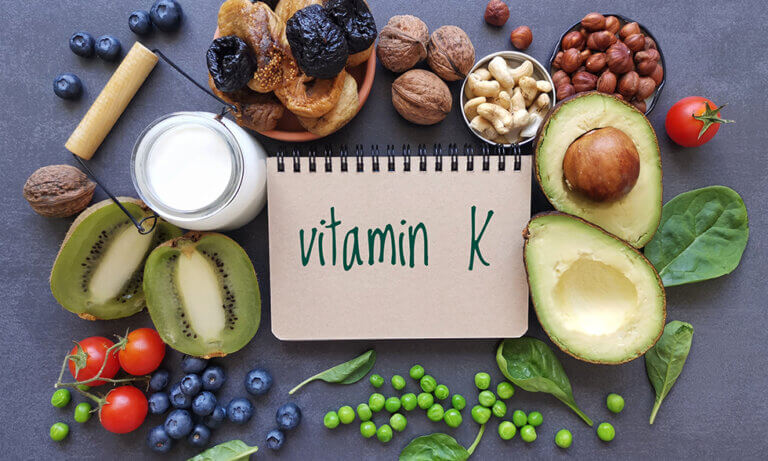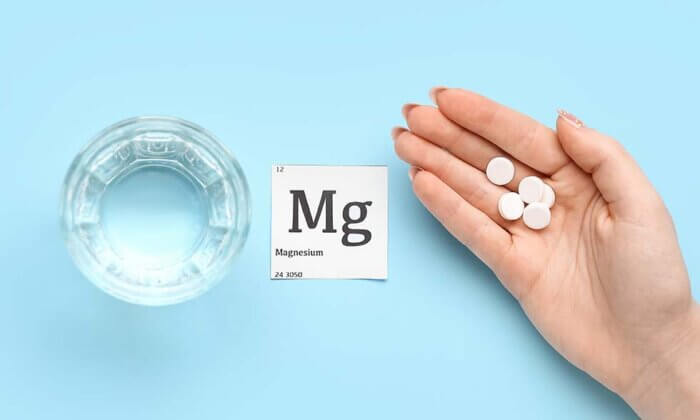Vitamin K and Cholesterol: Benefits, Foods, and Supplements
| | Reading Time: 4 minutes

When it comes to heart health, most people think of cholesterol, but few consider the role vitamin K plays. Understanding the connection between vitamin K and cholesterol can help you make smarter dietary choices, support your arteries, and protect your heart for years to come.
Understanding Vitamin K: Types and Functions
Vitamin K1 vs K2: What’s the Difference?
Vitamin K is a group of fat-soluble vitamins. The two types are vitamin K1 (phylloquinones) and vitamin K2 (menaquinones).
- Vitamin K1 is primarily found in leafy greens and plays a key role in blood clotting.
- Vitamin K2, found in fermented foods and animal products, is crucial for calcium metabolism and may impact artery health.
How Vitamin K Works in the Body
Vitamin K activates proteins that help bind calcium. Without enough vitamin K, calcium can end up in places it shouldn’t be—like your arteries—leading to hardening and plaque buildup.
The Role of Cholesterol in Your Body
Why Your Body Needs Cholesterol
Cholesterol often gets a bad rap, but it’s essential for life and health. Your body uses cholesterol to build cell membranes, produce hormones, and make vitamin D.
Good vs Bad Cholesterol: HDL and LDL Explained
- LDL (“bad”) cholesterol can deposit in artery walls, increasing the risk of heart disease.
- HDL (“good”) cholesterol helps remove LDL from the bloodstream, offering protection, by sending it away from the arteries back to the liver, where it’s broken down and removed from the body.
Balancing LDL and HDL is key to cardiovascular health.
How Vitamin K and Cholesterol Interact
Vitamin K2’s Role in Preventing Arterial Calcification
Research suggests that vitamin K2 helps keep calcium in your bones and out of your arteries, thereby reducing the risk of arterial stiffening and calcium plaque formation, which also involves cholesterol deposits.
Studies Linking Vitamin K and Cholesterol Levels
While vitamin K doesn’t directly lower cholesterol, studies indicate that adequate intake—especially of K2—may improve artery flexibility and reduce cardiovascular events in people with high cholesterol. A number of studies investigated how vitamin K is linked to lower risk of heart disease.
- A 2024 paper in Nutrition & Metabolism provides an excellent review of the interconnection between vitamin K and lipids.
- A 2020 paper in The American Journal of Clinical Nutrition discusses how vitamin K affects vascular stiffness and calcification.
Benefits of Vitamin K for Heart and Cholesterol Health
Reducing Plaque and Supporting Arteries
Vitamin K activates Matrix Gla-protein (MGP), a vitamin K-dependent protein synthesized in the bone, helps prevent calcium from hardening in artery walls. This means fewer chances for cholesterol-laden plaques to form.
Potential Impact on Blood Lipids
Some preliminary studies suggest that vitamin K2 may have a modest influence on lipid profiles, although further research is needed. Still, ensuring optimal vitamin K intake in your diet can complement other heart-healthy habits.
Why Consider Vitamin K Supplements?
While getting vitamin K from whole foods is always best, many people still fall short—especially when it comes to vitamin K2. Modern diets often lack fermented foods and certain animal products rich in K2, the form most closely linked to protecting arteries and supporting heart health.
That’s where a high-quality vitamin K supplement can help fill the gaps. A supplement can ensure you’re getting enough of this crucial nutrient daily, helping to keep calcium where it belongs—in your bones, not your arteries—supporting smoother blood flow and better cardiovascular health.
Choosing the Right Supplement for Heart and Cholesterol Health
When shopping for vitamin K, look for a supplement that includes vitamin K2 (MK-7), the most bioavailable form that stays active in your body longer. Some formulas even combine vitamin K2 with vitamin D3, another nutrient that works hand-in-hand to guide calcium into bones and out of arteries. I recommend pharmaceutical-grade supplements, such as Pure Encapsulations.
Investing in a trusted supplement is an easy step you can take today to support your long-term heart, artery, and cholesterol health. It’s a simple addition that can make a profound difference over time.
Foods Rich in Vitamin K That Support Healthy Cholesterol
Top Leafy Greens and Vegetables
For vitamin K1, fill your plate with:
- Kale
- Spinach
- Broccoli
- Brussels sprouts
These veggies also offer fiber and antioxidants, which can help maintain healthy cholesterol levels.
Fermented Foods and Animal Sources of K2
For vitamin K2, try:
- Natto (fermented soybeans)
- Cheese
- Egg yolks
- Liver
Including these alongside healthy fats can support both vitamin K absorption and cholesterol balance.
FAQs
Does vitamin K lower cholesterol?
Who should not take vitamin K supplements?
Is vitamin K good for cholesterol?
Is vitamin K good for your arteries?
Is vitamin K good for heart health?
Takeaway:
Understanding the link between vitamin K and cholesterol shows how essential this nutrient is for artery and heart health. By adding vitamin K-rich foods to your diet, you’re not just supporting normal blood clotting—you’re also helping maintain flexible, healthy arteries that keep cholesterol from becoming a bigger problem.
Selected Citations:
Tan, J., Li, Y. Revisiting the interconnection between lipids and vitamin K metabolism: insights from recent research and potential therapeutic implications: a review. Nutr Metab (Lond) 21, 6 (2024). https://doi.org/10.1186/s12986-023-00779-4
Shea, M Kyla et al. Vitamin K status, cardiovascular disease, and all-cause mortality: a participant-level meta-analysis of 3 US cohorts. The American Journal of Clinical Nutrition, Volume 111, Issue 6, 1170 – 1177 (2020). https://ajcn.nutrition.org/article/S0002-9165(22)01124-8/fulltext
Bjørklund G, Svanberg E, Dadar M, Card DJ, Chirumbolo S, Harrington DJ, Aaseth J. The Role of Matrix Gla Protein (MGP) in Vascular Calcification. Curr Med Chem. 2020;27(10):1647-1660. PMID: 30009696. https://doi:10.2174/0929867325666180716104159.
Zhao Q-Y, Li Q, Hasan Rashedi M, Sohouli M, Rohani P, Velu P. The effect of vitamin K supplementation on cardiovascular risk factors: a systematic review and meta-analysis. Journal of Nutritional Science. 2024;13:e3. doi:10.1017/jns.2023.106



